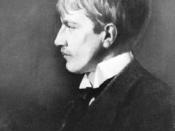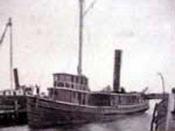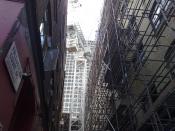Stephen Crane's ''The Open Boat'' is generally acknowledged to be among the masterpieces of the modern short story. The question of the story's excellence has never been debated; the only questions have been the proper means of defining the story's modernity and of accounting for what appear to be certain awkwardnesses of style, tone, and point of view.
''The Open Boat'' has been hailed as an example of naturalistic fiction at its best until recent years, when the automatic and somewhat naive tendency to equate naturalism and modernity has been called into question in all the arts. Thus Peter Buitenhuis asserts in a recent study [''The Essentials of Life: 'The Open Boat' as Existentialist Fiction,'' Modern Fiction Studies, 3, 1959, 243-250],'''The Open Boat' is not a naturalistic story,'' and he confronts the story as ''existentialist fiction,'' concentrating on Crane's ironic presentation and the story's demonstration of the absurdity of the human condition.
While Mr. Buitenhuis does not address himself to the question of ''The Open Boat'' as a modern short story, the implicit assumption is that use of the term existential automatically confers the status of modernity, as well it may. Yet such a reading leaves its author troubled by the same kinds of questions that troubled those who saw the story as naturalistic fiction--questions about Crane's style and about the story's protagonist. The answers to such questions come into focus when ''The Open Boat'' is viewed as a story with an emphasis on the epistemological aspect of the existential crisis.
The epistemological question about the problems of knowing and the limitations of man's ability to see and to know has become both subject and style in modern art from Conrad to Joyce, Picasso to Faulkner, Pirandello to Beckett. So persistent and pervasive has been the...



Very well written
Definately PhD quality writing, but I feel it might be a rough draft. "This extension of the epistemological question makes it clear that Crane intentionally divides his points of view among the various characters, and it is difficult to accept Peter Buitenhuis's conclusion that" I feel like there is something missing here that definately needs to be addressed
0 out of 0 people found this comment useful.